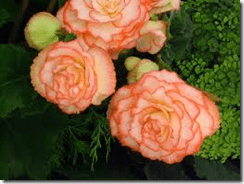Houseplants can be extremely beneficial additions to the interior of your home, but certain houseplants are toxic if eaten. While you may not plan to consume your plants, your pets or children might. Wax begonia poses a low threat of toxicity if eaten, according to horticulturists at the North Carolina State University Extension. However, the level of toxicity is so low that some websites list the wax begonia as nontoxic.
Poisonous Parts
-
The tubers, or roots, are the most toxic component of the plant. The leaves and flowers do not present the same threat of toxicity. The tubers contain toxic compounds called oxalates that irritate the mouth and stomach.
Pets
-
Wax begonia is especially poisonous to dogs and cats, but that is likely due to the fact that pets are more likely to knock over the plant and eat the roots, and the fact that pets respond differently to toxins than humans. Since dogs are more likely than cats to be destructive when left alone, put all your begonias someplace the dogs can’t access them.
Children
-
Children may have an adverse reaction to consumption of the plant. Again, this is only if the child actually consumes the tubers of the begonia. It’s a good idea to keep all houseplants out of reach of children; even nontoxic plants could fall on an unsteady toddler who grabs the pot for balance.
Symptoms of Toxicity
-
Your first clue should be the overturned plant pot. See if any of the roots have been chewed. If so, monitor your pet or child for signs of oral irritation. Kids are likely to touch their mouths and fuss a lot, but they may also begin to salivate excessively. Dogs and cats will present signs of oral irritation such as excessive drooling and vomiting, and possibly difficulty swallowing their food.


Deprecated: strpos(): Passing null to parameter #1 ($haystack) of type string is deprecated in /home/agriviek8Qv/agriviet.net/public_html/wp-includes/comment-template.php on line 2522